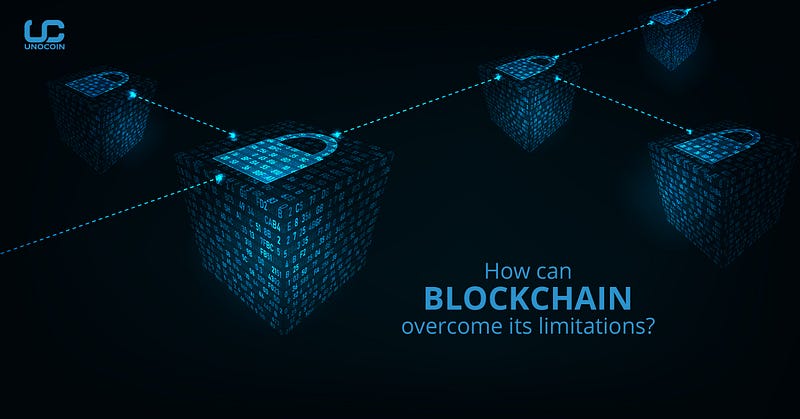
The famous blockchain concept that forms the fundamentals of Bitcoin, Ethereum and other popular cryptoassets has turned out to show great potential. However, the same potential has its limitations. While the technology can alter the methods of payment of goods and services and allow secure elections, it is also important to recognize its limitations as well.
Let us look at its limitations, how it possibly impacts the cryptoasset markets and the global financial world, and what could perhaps be done in order to overcome them.
Complex nature
One considerable problem of the blockchain concept is its intrinsic complexity. Its ideas and theories themselves are a difficulty to many, and along with that, its use of arcane jargon as well as industry-specific acronyms adds on more to its impenetrability.
Furthermore, its size and its distributed nature also plays a role in being disadvantageous. Due to its dispersed system, the blockchain technology tends to be vulnerable to hackers and other such disreputable actors. While a distributed system makes the blockchain more resilient, it does not prevent online attacks to it.
Slow speed
A significant limitation of the blockchain technology is the speed of its network. Since 2016, the Bitcoin network has processed only about seven transactions per second, which is an extremely slow rate according to today’s standards. While there are improvements that are yet to be created, for now, these limitations remain to be an obstacle of growth for a widespread adoption.
Transaction costs
Due to the blockchain’s slow speed, its network is incapable of keeping up with high demand levels. And hence, in order to reduce demands, transaction costs tend to increase.
Political implications
There are some serious political repercussions against the use of the blockchain technology, especially when it comes to non-monetary transactions. While certain governments express interests in the technology, many others feel it brings in only bad actors.
What are the solutions to these limitations?
While the blockchain technology is definitely becoming easier to influence and understand today, it still is a topic that’s difficult to wrap around your head. However, in order for the technology to be adopted by the masses, it is important to create user-friendly interfaces, services and tools that demand less technical expertise. This is because providing too many contemporary-digital platforms can prove to be problematic. “Blockchain and Bitcoin are really hard for those who are not related to technology or software developers to use,” says Evgeny Ponomarev, CEO of Fluence. “Just sending a transaction is pretty hard. We all, as communities need to build tools to make it easier, because it’s the only way to better adoption”, he emphasizes.

When it comes to blockchain scalability, other cryptoassets (except Bitcoin) and their blockchain systems do not suffer much from this issue. While there are various technologies that are being implemented as a solution to this, many complain about it not being an easy fix. “When you store the data on the blockchain, it’s quite expensive,” explains Alexander Demidko, CRO of blockchain database, Fluence. “That’s why all of those solutions are trying to store the data off chain and send it periodically to the blockchain. But it’s still hard to search through the data stored there. That’s why we think ideally there should be a way to upload the data to the decentralized environment, and then search the data I need there. That’s what we’re trying to solve with a decentralized database, as it’s not currently supported by the blockchain”, he says.
When limitations of complexity and speed are mitigated, adoption of blockchain technology amongst the masses will tend to reduce political implications too. Moreover, if its technology was to be used to track medical records, for instance, it could instantly become bound to the already existing laws around the globe.
Also Read:
https://blog.unocoin.com/is-blockchain-same-as-a-database-844625b9aeb



